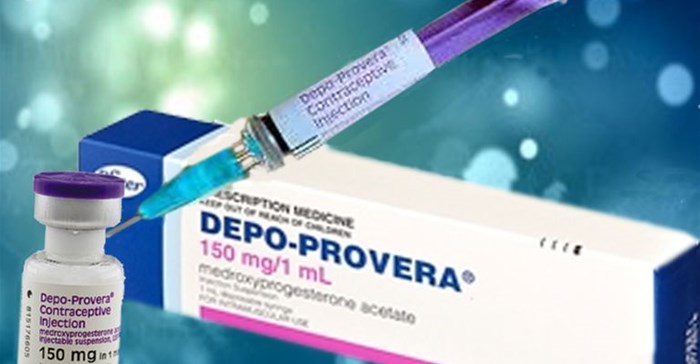Popular contraceptive could increase TB risk

A recent meta-analysis of clinical observational data suggests that Depo-Provera - because it contains the synthetic hormone medroxyprogesterone acetate (MPA), which acts as an immunosuppressant - may increase women’s chances of contracting HIV by up to 40%.
As a result, Professor Keertan Dheda and Dr Michele Tomasicchio, at the University of Cape Town’s (UCT) Centre for Lung Infection and Immunity, saw the need to investigate whether the use of Depo-Provera could also increase the risk of TB infection, given the prevalence of disease in sub-Saharan Africa, and the fact that it remains the top infectious disease killer globally.
“We looked at two different injectable contraceptives that are commonly used in South Africa – Depo-Provera and norethisterone enanthate (NET-EN). Our data showed that Depo-Provera increases TB pathogenesis, while NET does not.
“We found that Depo-Provera actually down-regulates immune function genes that are associated with protection against TB, and also up-regulates certain cell types that suppress your immune system,” Tomasicchio explains.
Injectable contraceptives are widely used across sub-Saharan Africa, being the birth control of choice for about 16.5-million women in the region. The World Health Organisation (WHO) cites “their effectiveness, their simple re-injection schedule every two or three months, depending on the brand and their suitability for discreet use” as some of the main reasons for their popularity.
Policy change
Tomasicchio would like to see the study results, along with those of future studies, drive a change in policy surrounding Depo-Provera usage in South Africa.
“My ultimate aim is to make sure that women are aware of the dangers of using Depo-Provera, particularly in the context of sub-Saharan Africa,” he says.
“What should happen is government clinics in South Africa – and elsewhere – should move over to NET, because it simply is the safer choice.”
Despite the fact that Depo-Provera has been proven to increase women’s chances of contracting HIV and now also TB, the government is reluctant to change policies.
The reason for this is two-fold: Depo-Provera is cheaper to manufacture and to maintain, as it works on a three-monthly reinjection schedule while NET-EN must be administered every two months.
Tomasicchio said he plans to pursue this study further, to gain a better understanding of why and how MPA actually drives TB pathogenesis.
Ultimately, he hopes that the mounting evidence showing that Depo-Provera is not the safest choice will be taken to heart by the South African government and that policy changes will be made sooner rather than later.














